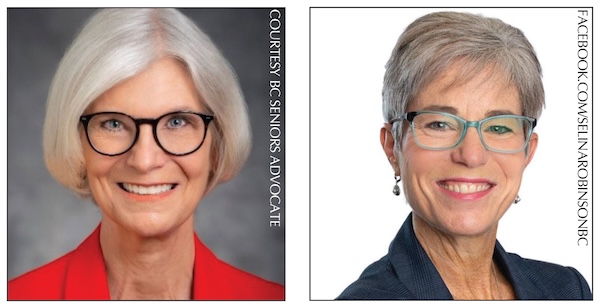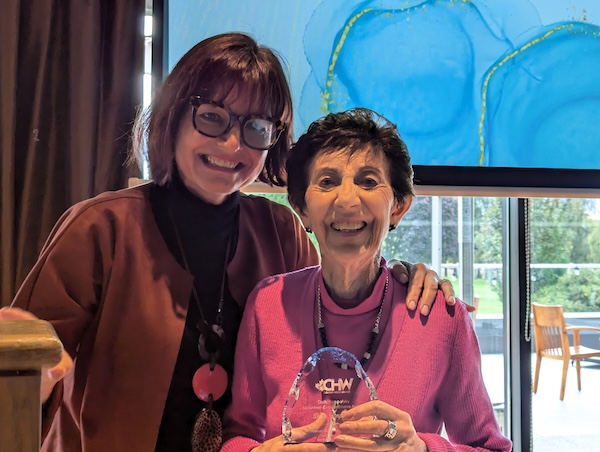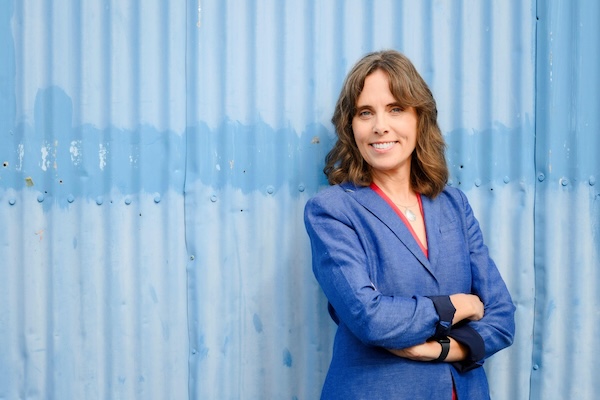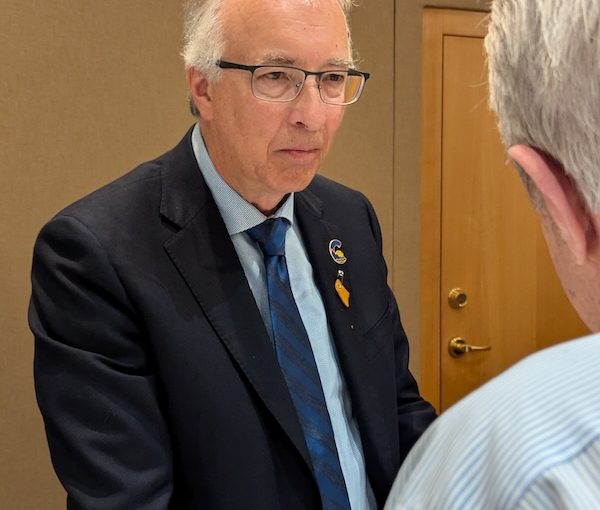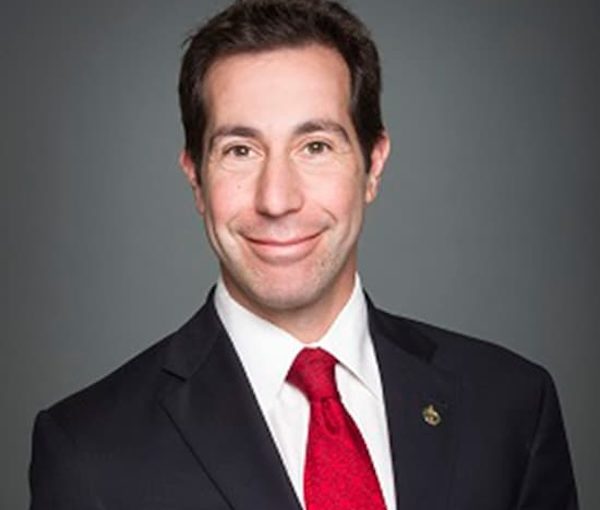Isobel Mackenzie, left, and Selina Robinson will be honoured at Jewish Seniors Alliance’s AGM Nov. 3.
The Jewish Seniors Alliance of Greater Vancouver’s annual general meeting on Nov. 3 will serve as an opportunity to welcome the organization’s first-ever executive director, Jeff Moss, and to honour two prominent women in provincial politics who have been dedicated to seniors throughout their careers: Selina Robinson and Isobel Mackenzie.
JSA chair Tammi Belfer will introduce Moss, whose hiring marks a significant change in the alliance’s 21-year history. The shift, she said, will enable the board of directors to focus on policy-making and high-level planning, while collaborating with the new executive director and staff on implementation.
“This transition is a gradual process, and I want to extend my heartfelt thanks and appreciation to each board member for their years of unpaid work,” said Belfer. “Together with our executive director, we can now strategically plan every event, raise much-needed funds, and improve and expand our services to our ultimate clients – the seniors of Greater Vancouver, the Lower Mainland, and the entire province.”
Moss told the Independent that he is looking forward to his first AGM as executive director, a job he started in July, and that, in his new position, he plans to recognize the past and look ahead to the future of the “modern, inclusive and dynamic charity.”
“I am pleased to work alongside our incredible community partners, with the support of our generous donors, a committed board and motivated staff,” he said. “I look forward to continuing to build on our strong reputation for positively impacting the lives of lonely and isolated seniors.”
Belfer praised Moss as JSA prepares for its move away from an operational board, noting that the coming year will not be an easy one, but it will be exciting.
“Jeff and I form a great partnership and I hope, together, we bring the name and extreme value of JSA to the forefront of all seniors. This population is growing and the need is increasing. Vancouver and BC can count on us to be there for seniors. We are seniors stronger together,” she said.
“Jeff’s caring nature and strong management skills are the exact combination we need for our first executive director,” she added. “When he reaches out to you, make a point of meeting with him – you are in for a treat.”
Robinson, who has been the member of the legislative assembly for Coquitlam-Maillardville since 2013, is not running for reelection on Oct. 19. She made the decision to retire for several reasons (jewishindependent.ca/the-aftermath-of-resignation) and is in the final stages of writing a memoir, which is set for release in November.
Before gaining a seat in the legislature, Robinson worked as a family therapist and was a city councilor in Coquitlam for two terms. Her career includes having been associate executive director of Vancouver’s Jewish Family Service Agency. As an MLA, she served as opposition critic on seniors, mental health and addictions, and other issues. In government, she served as minister of municipal affairs and housing, and as British Columbia’s finance minister. She was minister of post-secondary education and future skills until earlier this year.
“Representing people in my community and being their voice in government has been the greatest honour, and having JSA acknowledge that work warms my heart,” Robinson told the Independent. “Thank you, JSA, for being such great partners.
“Jewish Seniors Alliance understands that, in order to have a strong community, you need to make sure that the community has what it needs,” she said. “JSA engages Jewish seniors to provide them with services and supports, and to better understand their needs so that they can advocate for resources to better meet those needs.”
Mackenzie – who is nominated for a term this year on JSA’s board of directors – served for 10 years under both Liberal and NDP governments as the province’s first seniors advocate, before her retirement earlier this year. Her efforts won her widespread plaudits and dispelled initial skepticism concerning the effectiveness of the new office.
In a piece for the Orca in March, shortly after it was announced that Mackenzie would leave her role as seniors advocate, political commentator Rob Shaw wrote, “She left widely respected by all sides at the legislature, inside the Ministry of Health and even amongst the seniors care groups she has occasionally clashed with in her reports.
“Mackenzie’s work highlighting care hour shortages in long-term care homes, first-bed refusal policy problems, partners split up in assisted living, consent and admission concerns, and the underperformance of private long-term care facilities using public funding have all led to government reforms. She created a useful and relevant database on care homes. And she’s still fighting for a hike to the Shelter Aid for Elderly Renters (SAFER) rates.”
In the 1990s, long before she became the province’s seniors advocate, Mackenzie was chief executive officer of the provincial nonprofit Beacon Community Services, where she led a new model of dementia care that has become a national best practice, and established safety accreditation for home-care workers.
Jewish community member Dan Levitt is the new provincial seniors advocate, taking over from Mackenzie.
The JSA AGM on Nov. 3 will be held at Congregation Beth Israel, starting at 5 p.m. Dinner tickets are $75 and attendees are requested to RSVP by Oct. 20 to office@jsalliance.org or 604-732-1555.
Anyone who has made a donation to JSA of $18 or more in the past 12 months is considered a member in good standing and is eligible to vote at the AGM.
Sam Margolis has written for the Globe and Mail, the National Post, UPI and MSNBC.

